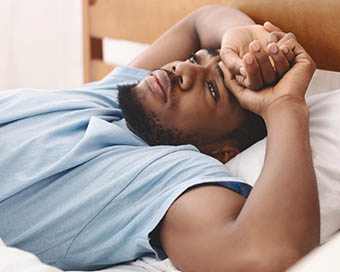Gallery
 PM Modi visit USA
PM Modi visit USA Only the mirror in my washroom and phone gallery see the crazy me : Sara Khan
Only the mirror in my washroom and phone gallery see the crazy me : Sara Khan Karnataka rain fury: Photos of flooded streets, uprooted trees
Karnataka rain fury: Photos of flooded streets, uprooted trees Cannes 2022: Deepika Padukone stuns at the French Riviera in Sabyasachi outfit
Cannes 2022: Deepika Padukone stuns at the French Riviera in Sabyasachi outfit Ranbir Kapoor And Alia Bhatt's Wedding Pics - Sealed With A Kiss
Ranbir Kapoor And Alia Bhatt's Wedding Pics - Sealed With A Kiss Oscars 2022: Every Academy Award Winner
Oscars 2022: Every Academy Award Winner Shane Warne (1969-2022): Australian cricket legend's life in pictures
Shane Warne (1969-2022): Australian cricket legend's life in pictures Photos: What Russia's invasion of Ukraine looks like on the ground
Photos: What Russia's invasion of Ukraine looks like on the ground Lata Mangeshkar (1929-2022): A pictorial tribute to the 'Nightingale of India'
Lata Mangeshkar (1929-2022): A pictorial tribute to the 'Nightingale of India' PM Modi unveils 216-feet tall Statue of Equality in Hyderabad (PHOTOS)
PM Modi unveils 216-feet tall Statue of Equality in Hyderabad (PHOTOS)India Open Competition in Shotgun, organised by the National Rifle Association of India (N
- Hockey India names Amir Ali-led 20-man team for Junior Asia Cup
- Harmanpreet Singh named FIH Player of the Year, PR Sreejesh gets best goalkeeper award
- World Boxing medallist Gaurav Bidhuri to flag off 'Delhi Against Drugs' movement on Nov 17
- U23 World Wrestling Championship: Chirag Chikkara wins gold as India end campaign with nine medals
- FIFA president Infantino confirms at least 9 African teams for the 2026 World Cup
Coronavirus stressing you out? Here are 8 ways you can sleep better Last Updated : 25 Jul 2020 02:01:53 PM IST 
A guy lying down in stress No matter who and where you are, your circadian rhythm (the basic sleep-wake cycle or body clock) is the internal process that determines your physical, mental and behavioural changes throughout the day and night. Sleep is a critical part of this circadian rhythm and any disruption in the sleep cycle can affect your overall health.
While getting sufficient sleep every night is important, many have reported difficulty in achieving it during the pandemic. A study published in 'Current Biology' in June 2020 revealed that even though people working from home during the pandemic are likely to be getting more sleep time, their sleep quality is often poor and disrupted.A more recent study in 'Chronobiology International' (published July 2020) observed 203 corporate professionals and 325 undergraduate and postgraduate students in India. The study revealed that disruption of daily life routine, anxiety, isolation, greater family-and work-related stress, and excessive screen time has led to poor sleep quality and excessive daytime sleepiness during the pandemic.The US National Sleep Foundation had published a statement in its journal 'Sleep Health' in May 2020 underlining how Covid-19 has disrupted circadian biology by making sleep more difficult. They also issued a number of guidelines to help everyone sleep better despite the situation.Here are some tips to help you get better sleep during the pandemic.Stick to a routine: A routine can bring a semblance of normalcy even in the most abnormal of times, so set a fixed time to wake up and go to sleep every day. Remember that it is important to bypass the snooze button on your alarm every morning and wind down for sleep at least an hour before bedtime.Don't work from your bed: Working from home during the pandemic might make you think working from the bed is convenient, but it is not conducive to a healthy routine. Reserve the bed only for sleep, and set up a work-station somewhere in your home away from the bed. This will also help you regulate your routine.Don't nap: This is not just another reason why you shouldn't work from your bed, but also why your proper nighttime sleep might be more difficult to get. Avoid daytime naps and get rid of daytime sleepiness by being more mobile and active around the house.Be active: Being active during pre-Covid times might have been easier, and it might not be on the top of your priority list right now, but get in at least half an hour's exercise every day. If going for a walk is not an option, engage in passive stretching, yoga, skipping and other exercises at home to get better sleep.Eat well: Watching what (and when) you eat can help promote good sleep hygiene. Not only should you have a balanced, nutritious diet, but also avoid alcohol and caffeine consumption at least two hours before bedtime.Avoid devices: The blue light emitted by most digital devices can lead to sleep delay and disruption. Switch off the television and keep those smartphones away before getting into bed for the night.Relax: Deep breathing, yoga, meditation, listening to calming music or reading a book before bedtime are great relaxation techniques that should be adopted to get better and undisturbed sleep.Get light: Get at least 10 minutes of sunlight every day by sitting next to a window or lounging in your balcony. Light and vitamin D play a huge role in setting your circadian rhythms straight, so this should help you sleep better.(The author is Dr Hussain Shoyab Ali, Physician, myUpchar)IANS New Delhi For Latest Updates Please-
Join us on
Follow us on








172.31.16.186







